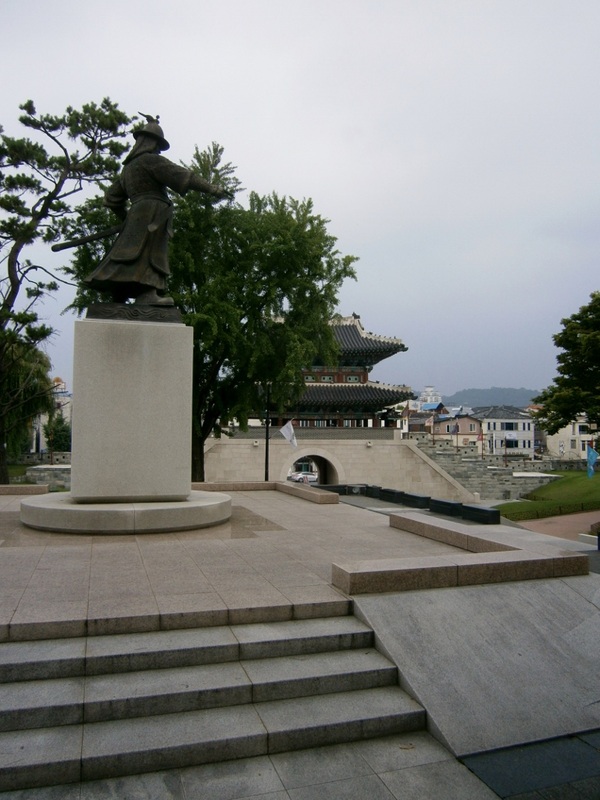The fortress is huge; lots to see; a wonderful place; I thoroughly enjoyed my hours there, except for the cicada-cacophony. (If you put yourself in my place while taking this picture, you have to image an incessant, grinding, loud cicada-humming).
Background: North Gate (공북문).
Further background: The old city-center of Jinju, north of the river.
Admiral Yi
A similar-looking statue, which I have walked past many times, stands at Gwanghawmun Plaza in the very heart of Seoul’s old center. That one depicts the greatest Korean military hero of them all, Admiral Yi Soon-Shin (이순신). In the same war against Japan (of the 1590s), Admiral Yi won a series of lopsided victories at sea, making up for the poor showing of Korean arms on land. People credit him with all-but single-handedly defeating Japan in that war.
Bafflingly, in the midst of Admiral Yi’s (undefeated) string of victories in the war, the leadership of Korea’s Chosun dynasty stabbed him in the back, and actually put him in prison (and nearly put him to death), in the most paranoid kind of Stalninesque purge. Sure enough, after Yi’s political-imprisonment, the tide of the war began to turn against Korea. The Japanese began winning victories at sea. Yi was released and saved the day, again.
(I learned all that from a biography of General Park Chung-Hee, South Korea’s military-ruler from 1961-1979. General Park viewed Korean political history surprisingly-negatively and he railed about it in essays. General Park’s words are almost too shocking to be believed: He wrote, “Our five thousand years of history was a continuation of degradation, crudity, and stagnation” in the essay “The Nation, the Revolution, and I” [“국가와 혁명과 나”,1961(?)], mentioning, among other things, that Korea’s indisputably-foremost military genius [Admiral Yi] was imprisoned, during a major war when the very fate of Korea was at stake[!], because of useless political squabbles and petty jealousy.)

